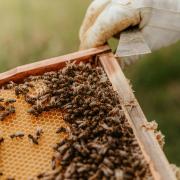
GANG CRIME
Gang culture has risen in numbers within our community and society, as there is an estimated percentage of 78.2% of gang members who are black, 12% are white, 6.5% are Asian, 2.2% Middle Eastern and under 1% were East Asian or of unknown ethnicity. There is a spike in gang violence in poorer areas of the country such as; South London and East London – where teenagers from the youth who are from ethnic backgrounds, especially Black people, don’t have the same equal opportunity as a white middle aged man – or someone who grew up in a rich environment where everything is handed to them.
There has been a silence on gang crime which in return allows the numbers to continue to increase and for people to not recognise the atrocity that occurs in neighbourhoods on a daily. Youngsters being stabbed and targeted as they walk down the streets, installing fear into their hearts not knowing the possibility of the damage that could take place for just stepping outside the door.
There are countless reasons as to why teenagers from a more disadvantaged background and neighbourhood would join a gang. One of the main reasons as to why people join is for protection from other gangs or people, for respect, to feel accepted – a sense of belonging and identity or even for status.
They don’t see the risk of reality and the danger they could be putting themselves and others in, as there is a risk of committing a crime, dealing/taking drugs, criminal record or even worse. Death.
The reason why Gang culture is so prominent in our society is that our society and government does not make this an issue to be learnt. They refuse to teach young people about the consequences of being in this position. Our society has been moulded to think a white man will have more vast opportunity than a black man – this ultimately breaks them into thinking there is nothing for them out there. If they are living in an environment where they have to provide for their family but is not able to have a job because of their skin colour and their upbringing, they result in other means of survival without recognising their mistakes and consequences of their actions.
We need to change. We need to create an environment that creates inclusion for other people from different backgrounds. We need to open that conversation of gang culture and give these children a sense of hope and empowerment to do something with their life.
Rapman is a British rapper that addresses these issues and creates a conversation within communities to show that it is okay for these messages to be said. He has just released his highly anticipated movie “The Blue Story” which depicts the life of someone who is part of the gang culture and addressing the matter as it should be. The film had made £1.3 million in its first week – and everyone was talking about the success of the film and the message it was portraying.
Rapman himself has stated that he created this movie to be as a guide and hopefully, hope to young people that think the best way to go about life is through gang crime. He wanted to show there is a light at the end of the tunnel and you don’t need to go through violence to feel a sense of belonging. You can do something with your life. There are opportunities out there for you. This is why he decided to have his cast who aren’t famous and in the public eye. But actually have a talent that could be expressed through art.
Numbers can decrease. It’s just our job to help.
By Khadejah Akhtar


























